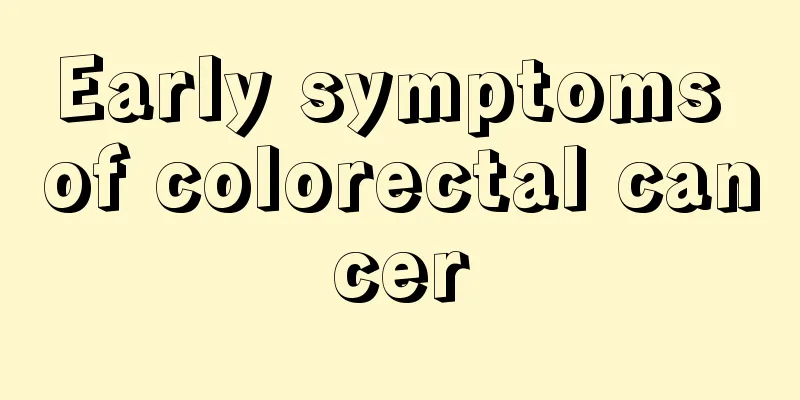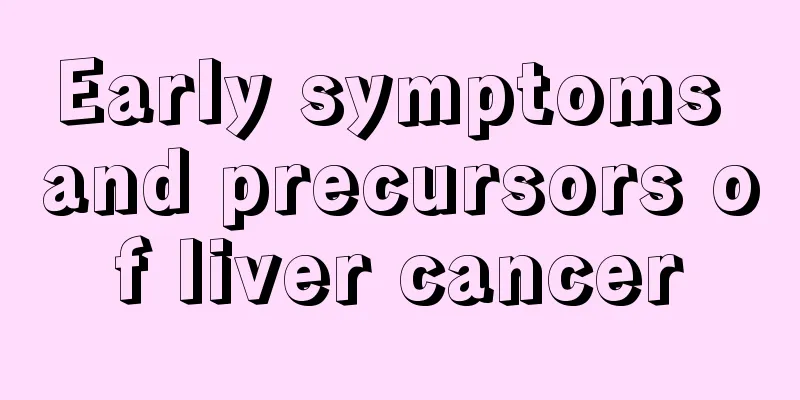Early symptoms of colorectal cancer

|
The early symptoms of colorectal cancer may not be obvious, but it is crucial to recognize these signals early. In the early stages, colorectal cancer often manifests as symptoms that are easy to ignore, such as long-term constipation or diarrhea, blood in the stool, abdominal pain, etc. If you find yourself having these symptoms, it is wise to consult a doctor as soon as possible. The early symptoms of colorectal cancer are often similar to minor problems in daily life, which increases the risk of being ignored. For example, many people may mistake blood in the stool for hemorrhoids or attribute abdominal pain to ordinary indigestion. In fact, these symptoms may be early signs of colorectal cancer. Long-term constipation or diarrhea may also be a warning light for intestinal health problems, especially when there are no significant changes in diet and lifestyle habits. Some people may experience abdominal discomfort or bloating, which can feel like the feeling of fullness after eating too much. If this feeling persists and there is no obvious reason, it is a sign that needs attention. Unexplained weight loss is also a symptom that should not be ignored. Usually, weight changes are related to diet, exercise, or stress in life, but if these factors have not changed and the weight is decreasing, it is necessary to consider possible health problems. Regular screening is very important for the prevention of colorectal cancer. Especially for those with a family history or those over 50 years old, regular colonoscopy can help detect potential problems early. A healthy lifestyle can also help reduce the risk of disease, including maintaining a balanced diet, exercising moderately, quitting smoking and limiting alcohol consumption. When facing colorectal cancer, the most important thing is not to ignore the signals sent by the body. Even mild symptoms deserve attention. Through regular check-ups and a healthy lifestyle, we can better protect ourselves and reduce the risk of colorectal cancer. Remember, early detection and treatment are the key to increasing the cure rate. Staying alert and paying attention to your health is responsible for yourself and your family. |
>>: What is squamous intraepithelial lesion
Recommend
What should we pay attention to in preventing lung cancer? 4 ways to prevent lung cancer
As we all know, lung cancer is a disease with a r...
Self-diagnose prostate cancer by comparing symptoms
With the aging of the population and the change i...
Will bile duct cancer recur after recovery?
Cancer has taken away countless lives and is a di...
How long can you live with lymphoma on the neck
Many people know that lymphoma is a malignant tum...
Early symptoms of hepatitis B liver cancer
How much do you know about the early symptoms of ...
Is it okay to get pregnant during kidney cancer?
Is it okay to get pregnant during kidney cancer? ...
Is it dangerous to have pills stuck in the chest?
When people eat grains, it is inevitable that the...
Normal heart rate range
What is a normal heart rate for people? In life, ...
Diagnostic criteria for fatty liver CT
Fatty liver is a common disease in clinical medic...
4 reasons why liver cancer favors middle-aged men
Primary liver cancer can occur at any age. The in...
Will I lose weight if I don't eat midnight snacks?
Nowadays, many girls reduce their food intake in ...
The gap between two teeth hurts
In daily life, we often encounter pain in the gap...
It turns out that there are 4 kinds of exercise methods for lumbar disc herniation
What are the exercises for lumbar disc herniation...
Signs of death from advanced liver cancer three days before death
Many of us have seen patients with liver cancer. ...
What to do if you feel weak after chemotherapy
Chemotherapy is the only method people use to tre...









